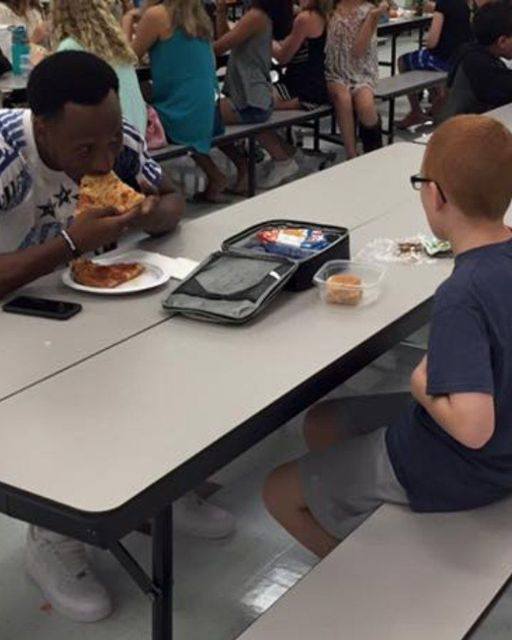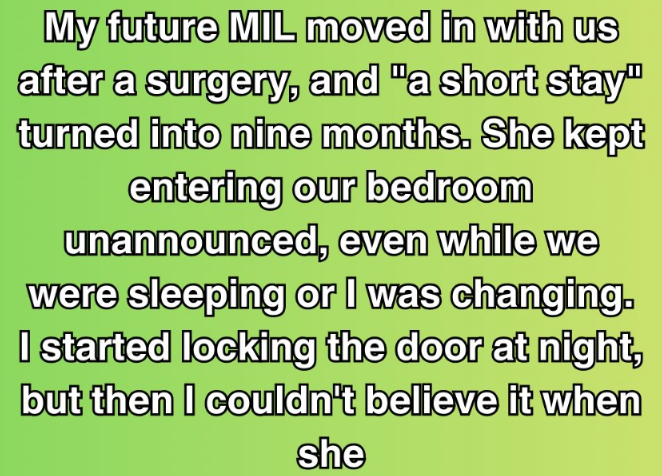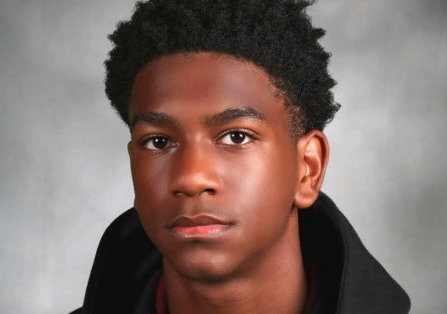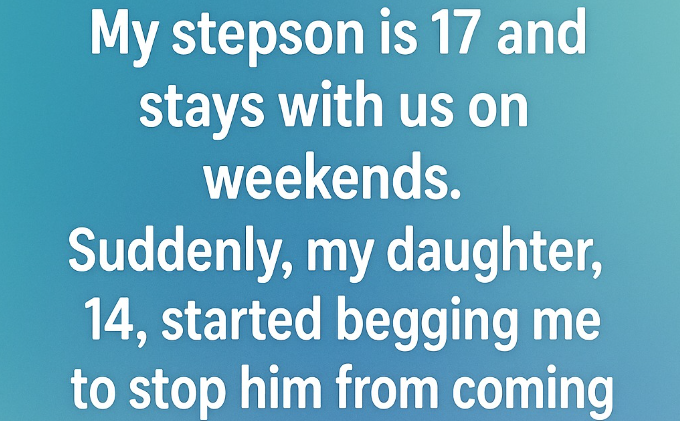It was one of those afternoons when the cafeteria smelled like hot cheese and teenage sweat, and the fluorescent lights hummed just enough to irritate the edge of your thoughts. My name’s Natalie, and I’ve been teaching sixth grade long enough to recognize the rhythms of this place like the back of my hand. It was pizza day—always a crowd favorite—and the energy in the room crackled with pre-teen chaos.
Kids shouted across tables, bartered cookies for Cheetos, and invented elaborate systems of who owed who a juice box. I tried to grade papers between bites of my lukewarm salad, but my eyes kept drifting toward the corner table.
Evan sat there. Alone.
He was small for eleven, with a too-big hoodie and eyes that always seemed to be waiting for something that never came. Every lunch period, he sat in the exact same spot, opened his plain gray lunchbox, and picked at whatever was inside like it offended him. I used to think he liked being alone, maybe one of those kids who preferred reading to recess, but it wasn’t that. Solitude is a choice. Isolation isn’t.
Today was no different—until it was.
He walked in like he belonged, though I knew right away he didn’t. Mid-thirties, maybe. Beard that looked a few days old, jeans with fraying cuffs, and a navy blue Cowboys jersey like it was game day. No ID badge. No clipboard. Just a cafeteria tray with two slices of greasy pepperoni and a small chocolate milk.
I sat up straighter. Visitors needed clearance. This guy clearly hadn’t checked in.
But he wasn’t heading toward the front office. He was heading straight for Evan.
My stomach dropped.
The man didn’t hesitate. He stopped in front of the boy, nodded at the seat across from him like they’d already met, and said, “Room for one more?”
Evan blinked. Hesitated just a second. Then he nodded.
The guy sat down, popped open the milk, and said, “So… ranch on pizza. Yay or absolute war crime?”
Evan didn’t answer right away. But his eyes lifted. Met the man’s.
And then—he laughed. Not just a polite laugh either. A full-on, honest-to-God laugh. The kind that shook his shoulders and made his cheeks glow.
I was stunned.
That kid barely spoke above a whisper in class. I didn’t know he had a laugh like that in him.
The man kept talking. Pokémon, the moon landing, and whether or not aliens had better music than us. Evan responded, nodding, then speaking, then joking. It was like someone had unscrewed the tight jar that had been keeping him sealed away all year.
I leaned toward Mrs. Alvarez, the principal, who sat beside me.
“Who is that guy?” I asked under my breath.
She didn’t answer right away. Her lips pressed into a line. Then she whispered, “I think that’s his step-dad.”
My breath caught.
“But… I thought—” I started.
She nodded slowly. “Yeah. He hasn’t seen him in nearly three years. Parole just cleared. Today’s the first day he was allowed to visit.”
I turned back toward Evan’s table.
That’s when I saw the boy reach into his lunchbox and pull something out. It looked like a folded piece of construction paper. Maybe a drawing, maybe a note. He handed it to the man, who took it with care, like it was made of glass. Opened it slowly.
I couldn’t hear what was said, but I could see the man’s face change—like the world narrowed into that single moment. His smile softened, eyes glossy.
He reached across the table and said something. Evan nodded, then wiped at his nose with his sleeve. It was messy. Human. Beautiful.
After lunch, the man signed out at the office. Everything had been cleared ahead of time—I just hadn’t been told. And that was fine. This wasn’t about me.
Later that week, Evan raised his hand in class for the first time. Just to answer a question about volcanoes, but it felt seismic. The week after that, he stayed after school to help organize the book fair. Then, slowly but surely, he started sitting with a few other kids at lunch. Never the center of attention, but part of the table.
And that man—his step-dad, Troy—came back. Not every day, but once a week, always at lunch. Sometimes he brought a joke book. Other times just himself and a willingness to sit with Evan like they had nowhere better to be. One day, he even came wearing a ridiculous Pikachu hoodie. The kids loved it.
Eventually, I learned the whole story. Evan’s mom had remarried when Evan was five. Troy wasn’t his biological dad, but he was the one who built LEGO towers with him and taught him to ride a bike. When Troy got arrested—nonviolent offense, bad choices, worse friends—it shattered their little family.
Evan’s mom tried to keep things together. But Evan had learned to keep his hopes low, his feelings locked up. It was safer that way.
Until pizza day.
Until a man walked in, sat down, and gave him permission to believe again.
A few months later, Evan gave me a card at the end of the school year. It was hand-drawn, messy, and written in green marker. It said:
“Thanks for not giving up on me. I’m still figuring things out. But I think I’m gonna be okay.”
He signed it with a drawing of a volcano—smiling.
I’ve kept that card. Not because I need to be thanked. But because it reminds me of what a single act of presence can do.
You never know who you’ll reach just by sitting down.
Sometimes the most powerful thing you can say is: “Room for one more?”
If this story moved you—even just a little—take a second to like or share it. Someone out there might need the reminder: it’s never too late to show up.




